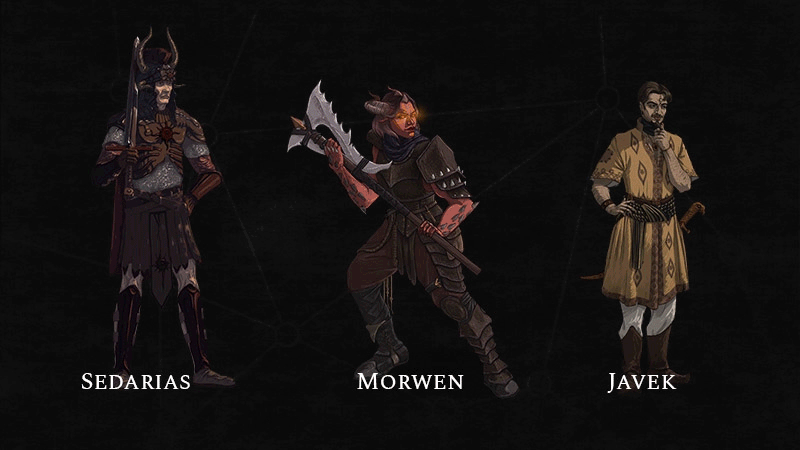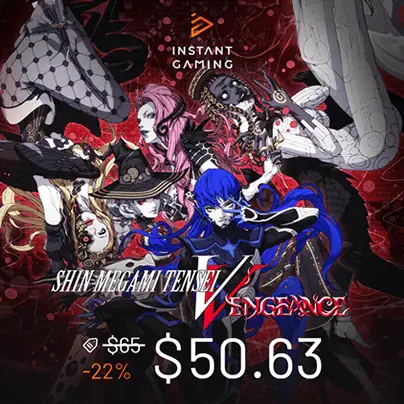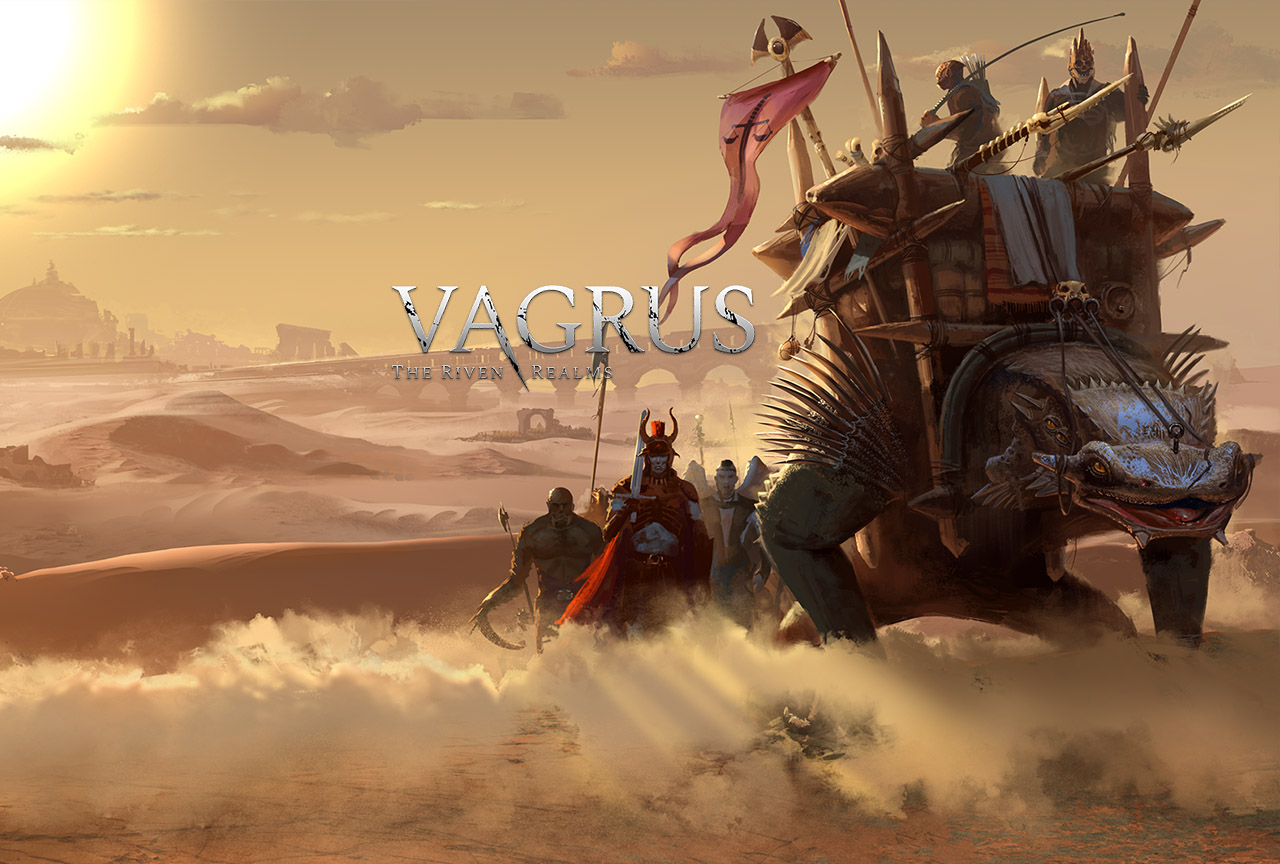
If you’ve played Vagrus’ prologue demo, chances are you already have a good idea of the grand story awaiting you.
And when you’ll have read this interview, you’ll have a pretty good sense of the epic quest the two founders of Lost Pilgrims studio went through, to create this unique adventure for you.
On one hand, you got Geri, English major and architect of worlds.
On the other you’ll find Gabor, Economics major, infusing life in the harsh lands of the Riven Realms.
Together, they’ve been the inseparable duo of a make-believe universe for 25 years, building and designing the Riven Realms, a homebrew tabletop RPG. That’s more than two decades spent crafting an intricate lore, deciding of rulers, wars, and the fate of empires — all of that under Geri’s pen and dice rolls from Gabor.
Till one day, in 2017, planets aligned particularly well and our two partners decided it was now time to share with others those incredible campaigns, in the shape of a cRPG. Now, 1.5 years after the beginning of this journey, we’ve had the chance to discuss with the Lost Pilgrims’ founders: let’s find out together the details of this wild upcoming game!
Hi Geri and Gabor, and welcome to our Coffee Break interview!
The origin of Lost Pilgrims is so unique: a gamemaster and his player for 25 years now founding a studio and making a game based on their homebrew tabletop RPG!
What was the turning point that made you think ‘ok, now it’s time for us to make our game!’?
Gabor: We often daydreamed and talked about how we could find a way to share the unique atmosphere and that same awesome feeling we had during our RPG sessions. At first we thought of publishing RPG campaign materials, comic books, and even board games with our own setting — The Riven Realms. Never happened.
At least not until fate presented us with an opportunity in 2017!
Namely: as we were getting older, a ‘now or never’ kind of thought grabbed us stronger than ever before while at the same time our corporate jobs just could not satisfy our creative side anymore. So we decided to both quit our day jobs and opened our indie game development studio to start working on Vagrus!
We loved Vagrus’ Prologue, what a captivating world!
This blend of post-apocalyptic, magic, and Roman empire is really interesting.
What were your inspirations for this universe’s creation?
Geri: Well, the proper (which, in this case means ‘long’ 😉 ) answer to that can be read here.
But if I really had to call out a handful inspirations, the most important ones would be Titan, the world of Fighting Fantasy gamebooks. That is the earliest influence I can think of when I try to recall the origins of the Riven Realms.
Tolkien is also a major one, especially works detailing the earlier ages, like The Silmarillion or The Lost Tales, as well as the lands devastated by Sauron’s abuse of power and nature.
We also get the Dark Sun comparison a lot but thereality is thatI came across it only in the early 2000s and by then most of the Riven Realms was already very detailed. However, I played Planescape, another old TSR world, much earlier and the weirdness of that amazing setting certainly had a huge influence on the Riven Realms.
But even with all the influences, the setting has become quite unique and now stands out decisively from high fantasy settings, being especially distant from the usual magical-medieval types. There are many tidbits of lore for those interested to read about them on our website!

So, this world was built as a tabletop RPG (The Riven Realms), and you decided to use it as the setting for your first video game.
What’s the essence of the tabletop game you wish to port into
Geri: In a tabletop RPG, the players form an adventurer party, often including NPCs (non-player characters — Ed.) ‘played’ by the gamemaster: during their campaigns, they travel as a group to distant places, take on tasks, get involved in events, and face all kinds adversaries.
That is a very similar setup to what’s happening in Vagrus:the player takes on the role of the leader of a traveling company and has to survive by any means in the dark world of the Riven Realms, along with companions, and their own stories, agendas, ideas, and goals.
This feeling of a team working towards goals in an open but dangerous world where travel is extremely risky is the essence we wanted to integrate into Vagrus from our own tabletop sessions.
A close-knit community against the world!

How does the writing process for
And does it take priority, or goes hand-in-hand with the creation of the gameplay mechanics?
Geri: I would say the writing process is very different, at least for me.
Rarely do I write down anything more than a complex set of notes for our RPG sessions!
It is all very functional and serves to remind me what I wanted to do at certain points. The way we play, there is a ton of improvisation going on with some fixed story points and set pieces.
That can’t fly in a cRPG, you have to write every possible dialog, every encounter, every description, everything that you can not show in the game otherwise. And of course, the tools are completely different: for Vagrus, we writers had to learn to script the branching texts in the tool we ourselves developed! It also requires a different perspective, one where you have to think in terms of varied but pre-written solutions to encounters, of the interconnection of each story event, and of a lot of game mechanics to include.
Gabor: The story is for sure the centerpiece in the game and so it takes priority in development. A good testimony of that is how we started the whole project with creating our custom ‘Event editor’ tool that Geri mentioned. That is where all the magic happens. It looks like this:

We apply agile development methodology which means we iterate and improve things during fortnightly sprints. The input from our writers is one of the main factors when deciding on the priorities for our game design sessions! When they write the Events in the Editor, they also script them, and so functions connected to given mechanics need to be clarified and implemented first.
Otherwise they either get stuck in the given Event or have to go back to it later on to finish the script. For example, we have recently finalized the game and system design for our News delivery mechanics, so now our writers can include that feature in their stories (and scripts), too.

From the Prologue, I understand there’ll be many ways to complete quests, quite alike those Choose Your Own Adventure books. Which leads me to that question:
What about the replayability of
Gabor: That’s a great topic, something we talk a lot about, as the Prologue is in some ways quite different from what we intend to achieve with the main game. The Prologue has its set course and though full of choices within the Events themselves, it is obviously less branching in the overall story.
In the main game, the goal is an open-world experience.
It does not have a single, set narrative but rather has many stories that can be found, followed through, or ignored at the player’s behest. A lot of these storylines are long and interconnected. Thus, players create their own story in a way and define who they are in this gods-forsaken world. We’re also planning on eventually adding a ‘main story’ of sorts, but it will remain optional — one can decide never to pursue it.
All these will allow players to run multiple playthroughs with a different group of companions, earning reputation with opposing factions, completing stories in other ways or in different order, creating a mix that opens up new, perhaps even unique opportunities. Or at least, that’s our aim 🙂

You chose a turn-based system for the combats.
The importance of placement and movement reminds me a little of Darkest Dungeon, which had a big emphasis on these mechanics.
How do you plan on making each fighter stand unique?
Gabor: Vagrus is not only turn-based but also very stat heavy (even more than Darkest Dungeon in fact), and there is a great variation in characters and enemies due to that.

Positioning on the battlefield is paramount due to a distinction between melee and support positions. Each character has four Combat Skills that involve a lot of status and movement effects and thus create synergies with the Skills of other characters.
We feel that we tweaked the concept enough to create a different kind of combat experience 🙂
Also, since it is a cRPG,not every character is superb in open conflict and so some characters will have a rather surprising set of skills. Like Vorax ^^

I’m curious about the importance of combats and their implications in
Will those fallen on the battleground remain lost forever?
Geri: Well, first off, we need to differentiate between Crew and Companion combat. Crew combat is where your whole comitatus fights against bigger groups of enemies.
While in Companion combat, only your most trusted and capable crew members — who have their own unique storylines— go into battle.
While your generic fighters and crew may die off fairly easily in Crew combat, your Companions are much harder to lose permanently. When they get beaten up pretty bad in combat, they fall into a Downed state.
They cannot act but can still be targeted and damaged!
They got vitality points for that state, and if that too is depleted, they are Out of Action. Basically, it means long-term wounds and potentially death!
A mortally wounded Companion requires medical attention, and that is fairly hard to come by, so the player needs to take care — ideally by avoiding such situation altogether — or if it comes to it, treating the wounded as soon as possible with the available means.

You’ve got a rich world and a bag full of stories, a highly tactical turn-based system…
And now you’re gonna run a crowdfunding campaign over Fig!
Apart from the funding, what do you expect this experience will bring you?
Gabor: Yes, it’s quite exciting to talk about our upcoming Fig campaign!
Especially as Vagrus will be one of first campaigns launched in Fig’s brand new framework called ‘Open Access’. One of the main changes to their previous approach — and to traditional Kickstarters for that matter — is that only games that have a stable Alpha build are selected for this kind of campaign.
With that, players pledging on the pertinent tiers can get their game keys immediately, similarly to an Early Access game, just way earlier in the development process. The other important difference is that it’s open-ended: no cut-off dates, but instead a series of development milestones set up that the pledges will be going towards. Like, say: first the contributions will support gathering money for a brand new feature, then for a new region to be opened up in the game, and then for additional enemies, etc. The money raised to cover certain milestones will soon bear fruition as the developer publishes new releases of the game. These changes make the campaign very transparent, connecting the fans and the developer on a whole new level.
Thank you for talking to us!
Before you leave, a bonus question: coffee, tea, or beer? ☕?????????
Geri: Beer!
Gabor: Coffee and tea!


Vagrus is actually on development, but you can already play the Prologue and enjoy a slice of what the actual game will be: https://vagrus.com/.
And of course follow its crowdfunding campaign on FIG!
https://www.fig.co/campaigns/vagrus-the-riven-realms
You can also wishlist the game via Steam, and follow all updates via Lost Pilgrims’ twitter account.











2 thoughts on “A Coffee Break with: Geri & Gabor, Vagrus”